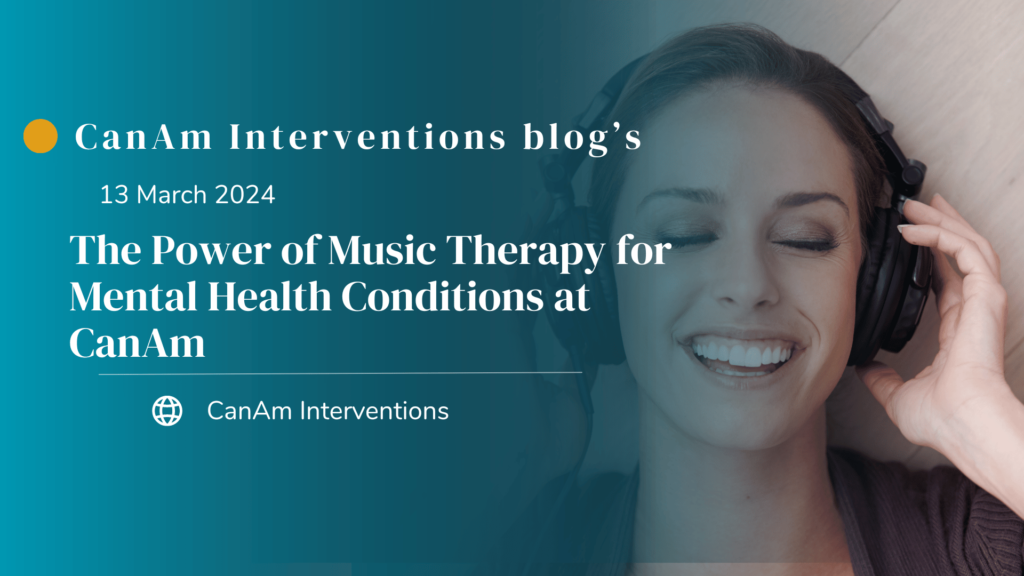We are learning more and more daily of the benefits that music has on our lives. Music has the power to touch our souls, lift our spirits and heal. But can music actually act as medicine?Whether it’s used in therapy, health facilities, hospitals or hospices, music can provide comfort for those who are ill and help them cope with their illness. Music helps people heal on a physical level by providing relaxation techniques that reduce stress levels and improve cognitive function. It also provides emotional healing by helping us express feelings of grief, fear or sadness which often accompany hospital stays or end-of-life situations.
Can-Am would like to explore and bring awareness to how healingmusic can be in our lives and how It has proven to be an invaluable tool in times of need:
Music Has Healing Power
Music has long been used as a source of comfort and solace in times of distress. It can provide a sense of connection, support, and understanding during difficult moments. The history of music in healthcare has shown that music can reduce stress, anxiety, depression, and even chronic physical pain. Listening to calming music can help people relax and focus on the present moment.Studies have also found that listening to music helps release endorphins – hormones associated with pleasure – which further reduces stress levels and may even aid in the healing process.
Benefits of Music as Therapy

Music therapy is an evidence-based practice that uses music to address physical, emotional, cognitive, and social needs of individuals. It has been found to be beneficial in a variety of settings including hospitals and hospices. Music therapy can help reduce pain levels, promote relaxation, improve communication skills, and provide comfort during difficult times.One way music therapy can be used to reduce pain is through the use of rhythmical breathing techniques. These techniques involve focusing on a steady beat while taking slow deep breaths which helps relax the body and mind. This type of intervention has been shown to decrease anxiety levels as well as lower heart rate and blood pressure which can lead to reduced pain levels overall.Another benefit of music therapy is its ability to promote relaxation by providing a distraction from stressful thoughts or feelings.Listening to calming music can help create a sense of peace and tranquility which may allow for more effective coping strategies when dealing with difficult emotions or situations such as those experienced in hospital or hospice settings.
How Music Can Help Heal Emotional Wounds
Music can provide comfort and solace during times of distress, allowing us to express our feelings without having to put them into words. Music can also be used as a tool for self-reflection, helping us gain insight into our own experiences and find meaning in difficult situations.Listening to music can help people process their emotions more effectively, reducing stress levels and improving overall well-being. Studies have shown that listening to music releases endorphins – hormones associated with pleasure – which can help reduce anxiety and depression. Music is also known to increase serotonin levels, which helps regulate moods and promote positive thinking.Music has also been found to be particularly beneficial for those who are grieving or suffering from trauma or PTSD (post-traumatic stress disorder).
How Music Can Help Improve Cognitive Function
Music has been used as a form of therapy for centuries, and its healing power is still being studied today. Music can help improve cognitive function in many ways, from improving memory to increasing concentration.
Memory Improvement
Listening to music can help stimulate the brain and improve memory recall. Studies have shown that people who listen to classical music while studying are more likely to remember what they learned than those who don’t listen to any music at all. This is because listening to certain types of music helps activate parts of the brain associated with learning and memorization. Listening to familiar songs can also trigger memories from past experiences, which may be beneficial for those suffering from dementia or Alzheimer’s disease.
Concentration & Focus
The rhythm and melody of certain pieces of music can help focus attention on tasks that require concentration, such as reading or writing an essay. Instrumental tracks without lyrics are often best for this purpose since they won’t distract you with words or singing voices like vocal-based songs might do. Classical works by composers such as Mozart, Beethoven, and Bach are particularly effective when it comes to aiding concentration due to their structured patterns and melodic progressions, which encourage mental clarity and focus on the task at hand rather than allowing your mind to wander off into daydreaming mode.
Stress Reduction
Music has long been known for its calming effects on both body and mind, making it an ideal choice when trying to reduce stress levels in high-pressure situations such as exams or job interviews where nerves could get the better of you. Listening to soothing sounds before taking part in these activities will not only relax your muscles but also clear away distracting thoughts so that you can stay focused on achieving success in whatever challenge lies ahead.Music can be a powerful tool to help improve cognitive function and provide comfort, which is why it has been used in hospitals and hospices for many years.
Can-Am Interventions uses natural medicine therapies such as music therapy to treat our patients. We believe in applying natural remedies as our primary way of treatment. If you are interested in ways to cope with emotions like anger, anxiety, loss of concentration, sadness or the many other emotions that can be challenging, Can-am is here to help. We are here to help answer questions and concerns, as well to provide treatment options. Please call us today, we look forward to helping you.
E: patti.pike@canaminterventions.com W:www.canaminterventions.com
1-800-638-1812 Toll Free Internationally
415-827-3725 Cell /Text
415-578-2875 Office